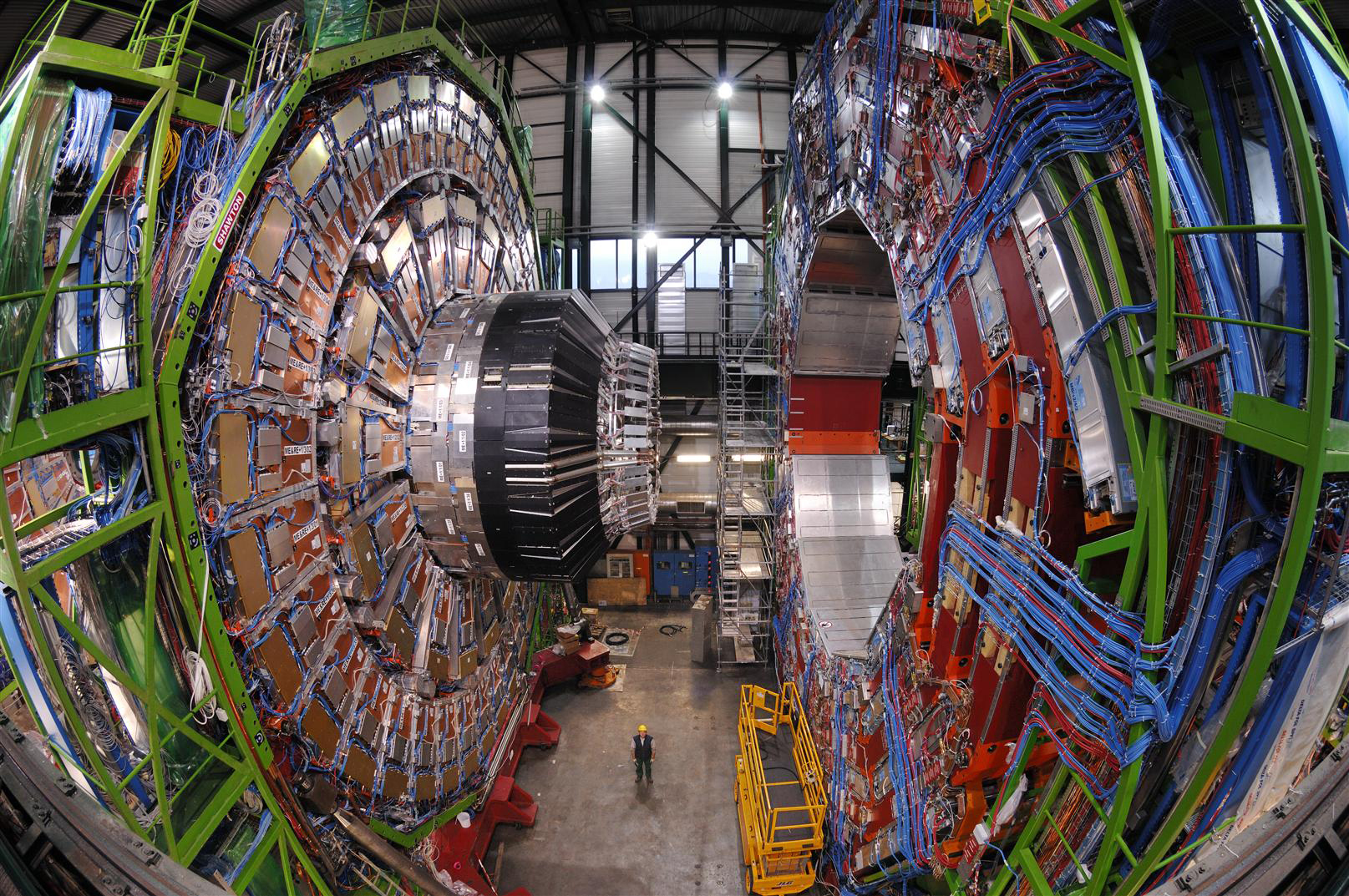Purdue CMS team named co-recipient of 2025 Breakthrough Prize in Fundamental Physics
2025-04-08

The CMS detector. (Photo provided by CERN/Maximilien Brice)
The Compact Muon Solenoid (CMS) Collaboration at CERN, which includes significant contributions from Purdue University physicists, has been awarded the 2025 Breakthrough Prize in Fundamental Physics for its groundbreaking work at the Large Hadron Collider (LHC) in Geneva, Switzerland.
Dubbed the "Oscars of Science," the Breakthrough Prizes honor transformative achievements in the fields of Fundamental Physics, Life Sciences, and Mathematics. The award honors the collaboration’s detailed measurements of Higgs boson properties confirming the symmetry-breaking mechanism of mass generation, the discovery of new strongly interacting particles, the study of rare processes and matter-antimatter asymmetry, and the exploration of nature at the shortest distances and most extreme conditions at CERN’s LHC.
Purdue University, a founding member of the CMS Collaboration, has played a vital role in this achievement. Seven faculty members from Purdue’s Department of Physics and Astronomy are currently active in CMS research:
Norbert Neumeister, Andreas Jung, Matthew Jones, Mia Liu, Fuqiang Wang, Wei Xie, and Neeti Parashar.
Purdue’s legacy within CMS spans many years and includes the contributions of several former and current faculty members, such as Virgil Barnes, David Miller, and Laszlo Gutay. The collaboration has also benefited from the efforts of numerous Purdue postdoctoral researchers and students, including:
Giulia Negro, Ramkrishna Sharma, Dmitry Kondratyev, Stefan Piperov, Amandeep Kaur, Jan-Frederik Schulte, Yao Yao, Garyfallia Paspalaki, Andrew Wildridge, Soumik Chandra, Sushrut Karmarkar, Nihar Ranjan Saha, and Minxi Yang.
Of the $3 million prize, the $1 million allocated to the CMS Collaboration was donated to the CERN & Society Foundation. The funds will establish grants for doctoral students from member institutes, supporting their research stays at CERN, demonstrating a commitment to nurturing the next generation of physicists. A full list of named CMS laureates can be found here.
Watch Jeff Bezos and Yuri Milner introduce the winners of the 2025 Breakthrough Prize in Fundamental Physics here.
About the Department of Physics and Astronomy at Purdue University
Purdue’s Department of Physics and Astronomy has a rich and long history dating back to 1904. Our faculty and students are exploring nature at all length scales, from the subatomic to the macroscopic and everything in between. With an excellent and diverse community of faculty, postdocs and students who are pushing new scientific frontiers, we offer a dynamic learning environment, an inclusive research community and an engaging network of scholars.
Physics and Astronomy is one of the seven departments within the Purdue University College of Science. World-class research is performed in astrophysics, atomic and molecular optics, accelerator mass spectrometry, biophysics, condensed matter physics, quantum information science, and particle and nuclear physics. Our state-of-the-art facilities are in the Physics Building, but our researchers also engage in interdisciplinary work at Discovery Park District at Purdue, particularly the Birck Nanotechnology Center and the Bindley Bioscience Center. We also participate in global research including at the Large Hadron Collider at CERN, many national laboratories (such as Argonne National Laboratory, Brookhaven National Laboratory, Fermilab, Oak Ridge National Laboratory, the Stanford Linear Accelerator, etc.), the James Webb Space Telescope, and several observatories around the world.
Written by: David Siple, Communications Specialist, Purdue University Department of Physics and Astronomy